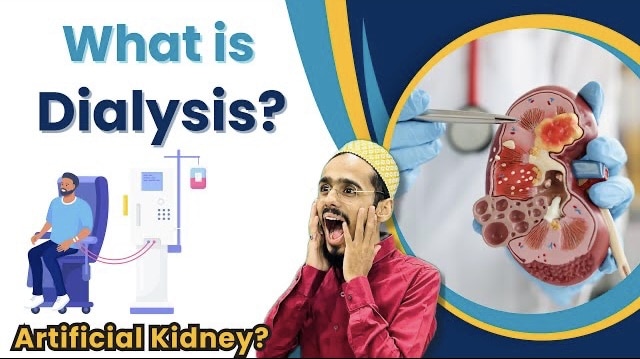What is Dialysis
- It is a medical procedure which help individuals whose kidneys are not functioning properly.
- It is a process that involves removing waste products Like extra fluids and toxic materials from the blood
- When kidneys are not able to perform there function properly
- Dialysis will help to maintain proper electrolyte balance and control blood pressure in body.
Types of Dialysis
There are two main types of dialysis
- Hemodialysis
- Peritoneal dialysis.
Hemodialysis:
In this blood will be remove from the patients body and it will circulate through a machine known as dialyzer or artificial kidney.
The dialyzer acts as a filter which removing waste products and extra fluids from the blood from patients body .
The cleaned blood is then returned back to the patient’s body.
it is typically perform in a dialysis center or multi-speciality hospital and the sessions usually last around 4 -6 hours several times a week.
Peritoneal dialysis:
It involves using the lining of the abdomen which is called the peritoneum which acts as a natural filter.
A sterlized dialysis solution will introduced into the abdominal cavity of the patient through a catheter unit.
Waste materials and extra fluids pass from the blood vessels to the peritoneum into the dialysis solution.
After a few hours the used solution will be drain and fresh solution will be introduce in it .
It can be performed at home also providingthe greater relaxation in treatment schedules of the patient.
Artificial Kidney –
An artificial kidney also known as a renal replacement device is an amazing innovative technology .
That aims to mimic the functions of a natural or real kidney.
It is being developing as an alternative to traditional dialysis method.
The goal of an artificial kidney is to provide a more effective and most convenient treatment method for patients with kidney failure.
Several resaerches are being explored in the development of artificial kidneys.
One method is involving and creating a device that mimics and acts as filtration and reabsorption functions of the kidneys using specialized artificial membranes and bio-engineered materials.
Another approach involves developing implantable or wearable devices that utilize amazing technologies
Like nano-technology or bioartificial organs to perform the functions of a natural or real kidney.
The development of artificial kidneys is still a work which are in a progress .
Researches and clinical trials are constantly running to refine and improve these type of technologies.
The ultimate aim is to provide Patients with kidney failure a more effective and less burdensome treatment than traditional dialysis improving their quality of life.
